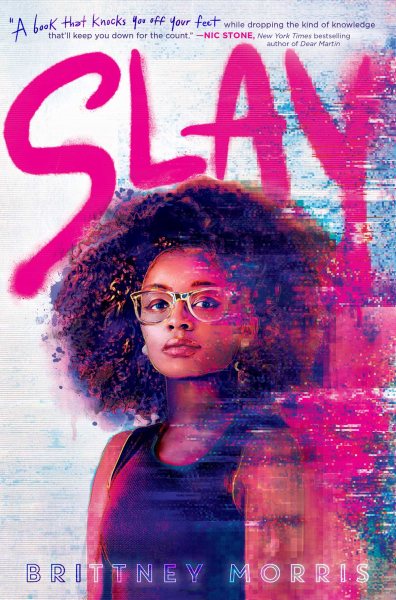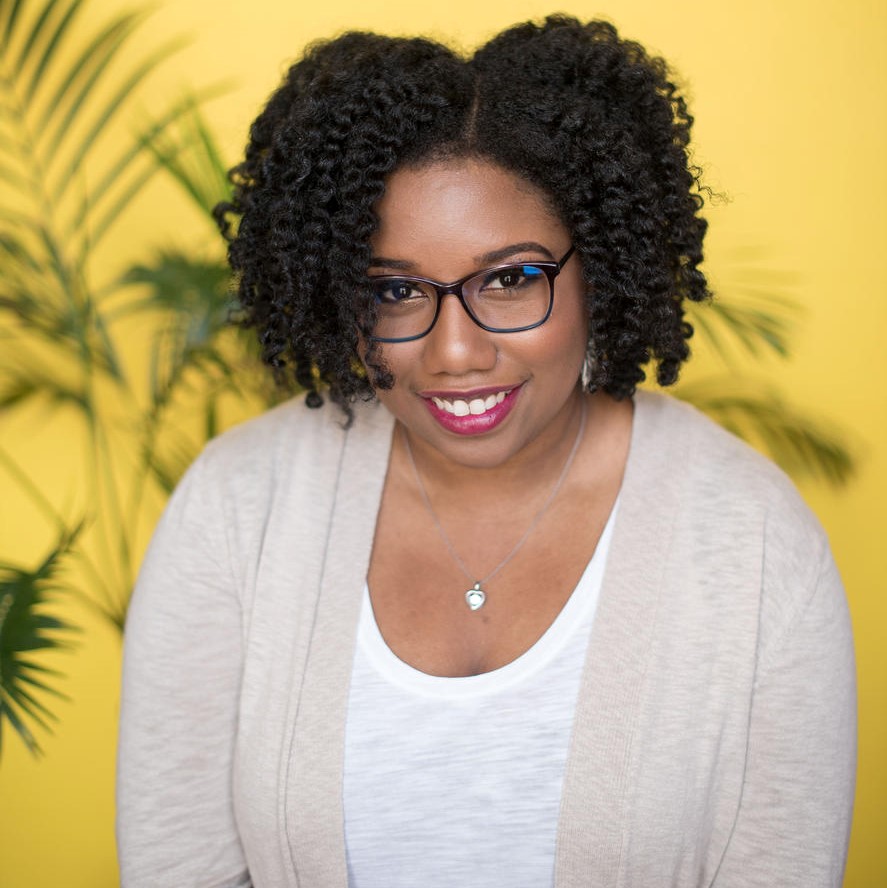Interview by Jana Hoops. Special to the Clarion-Ledger Sunday print edition (September 22)
 Brittney Morris’s hot debut novel presents a relevant and hard-hitting YA tale of a black teen game developer–17-year-old Kiera Johnson–who created the secret multiplayer role-playing game called Slay.
Brittney Morris’s hot debut novel presents a relevant and hard-hitting YA tale of a black teen game developer–17-year-old Kiera Johnson–who created the secret multiplayer role-playing game called Slay.
When things begin to spin out of control and the secret world of the game is threatened, Kiera and her online players face a dilemma that lands squarely in the lap of the young game developer, as she explores the ramifications of racism and the importance of exposing the truth.
Morris earned a bachelor’s degree in economics from Boston University, where she was the founder and former president of the school’s Creative Writing Club.
A video game player herself, Morris now lives in Seattle with her husband.
Please share how the story in Slay was shaped by your own personal experiences.

Brittney Morris
Growing up, I was one of the only black kids in my small town. I felt like I was expected to be the black culture expert at my school. I was supposed to know a bunch of musical references, movie references, etc. that just weren’t part of my life. I felt too black to fit in with my white classmates and too “white” to fit in with my black friends, so I grew up in a racial limbo.
Writing Kiera’s story felt quite cathartic because it so closely mirrors mine. Moving between majority white and majority black spaces felt like stepping into alternate universes, one in which I could be myself–I just didn’t know it yet–and one in which I was expected to be “on” so as not to offend or ostracize white people. Kiera learns, like I did, exactly what Blackness means to her and just how diverse, beautiful, and complex it is.
Tell me about the idea of taking on many social topics that are currently relevant to young people today through the medium of video games, and how it resonates with their generation.
Video games–especially indie games–have been tackling tough topics for years: depression, suicide, immigration, chronic illness, self-harm, cyberbullying, and childhood trauma, just to name a few off the top of my head. I have game recommendations for each of those topics if anyone’s interested. Just tweet at me. Anyway, I didn’t see why racism, exploration of racial identity, and “reverse-racism” couldn’t fit in with that list.
And as for Gen-Z specifically, I love seeing them on Twitter. You think we Millennials are skeptical of everything and tired of the status quo? Just you wait. Gen-Z is not here to take no mess, and it gives me so much hope for our future as a species. Video games have been an underutilized immersive and fun educational medium for decades, and I don’t think there’s a better or more innovative group to take it on than today’s teens.
Slay is your debut novel. Tell me about the bidding war for the rights to your book–the immediate interest it garnered from major publishers, and the fact that it is already being considered for movie rights. Were you surprised by this instant response to your work?
I had a great feeling the whole time I was drafting Slay. I knew the concept was commercial, easy to pitch, and full of heavy themes and high stakes. But you never know for sure if something will resonate in publishing. So, I guess when my agent and I began pitching to editors, I was hoping it would resonate, but prepared for the worst. Luckily, we had 13 editors from eight different houses–I think–it’s been awhile – interested!
The bidding war for Slay was wild. It lasted two days and involved lots of conversations with my amazing agent who coordinated the whole process like a wizard. I wasn’t surprised by the response, because I went into this expecting anything to happen. But I am grateful, and eternally honored that I get to share this book with so many people. It’s a lifelong dream come true.
Ultimately, what is your hope for what you would like to accomplish through this book, and the message you want to send?
I was inspired to write Slay after seeing Black Panther. It was the first time I walked into a room full of Black people and felt like I belonged, 100 percent, without having to know any specific pop culture knowledge. You can blame my lone-Black-kid-in-a-hugely-white-town childhood for my complicated relationship with Blackness. It was enough to cross my arms and say “Wakanda forever.”
I want that total unconditional love and acceptance for every single Black person on the planet, especially the ones on the outskirts who feel like they’ve always been “different,” for whom major stereotypes don’t necessarily resonate, like me. I want everyone who reads Slay to walk away believing their identity is what they make it, and that no one has the right to tell them what their identity means or what stereotypes that means they have to fit.
Your publishing agreement includes a second book. Can you tell us yet what ideas you are considering for your sophomore offering?
It does, and I can! It’s about two teen black boys. One can see into the past, and one can see the future. The book is about living with the pressure of knowing what your ancestors went through to get you where you are today, the threat of violence, brutality, and incarceration in your future, and navigating the present under the weight of toxic masculinity.
Slay was a love letter to black people worldwide. My next book sits at the corner of Blackness and masculinity, and it is meant to be a love letter to black men specifically.
Brittney Morris will at Lemuria on Tuesday, September 24, at 5:00 p.m. to sign and discuss Slay. At 5:30, she will be in conversation with Ebony Lumumba.


Comments are closed.